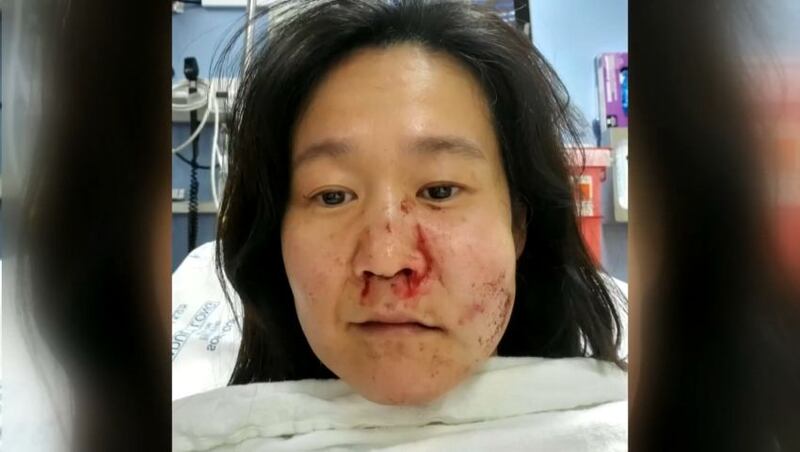Horrific video shows the attack in the Chinatown International District that left a Northshore teacher bruised and bloodied.
It’s one of the latest in series of escalating violent attacks against Asian Americans throughout the country.
“It’s scary. It’s sad. It’s heartbreaking. It’s frustrating,” Kert Lin said.
As the victim of racial slurs outside a Seattle Home Depot in May at the start of the pandemic, Lin understands all too well why some in the Asian American community may not report when they’ve been victimized.
In Lin’s case, the Seattle Police Department officer who responded to his call politely brushed off his concerns in violation of department policy to take a report. But when the bodycam video went public, Lin found himself the target of more hate, he was revictimized and called a liar.
“It was hard. There was a lot of anxiety,” Lin said. “I was doubting myself even, like did I misunderstand that? Was I really not supposed to report that?” Lin explained.
And that’s what happened even though Lin can speak the language, he knows whom to call, and how to advocate for himself.
The “Center for the Study of Hate and Extremism” found that anti-Asian hate crimes in Seattle surged 33% from 2019 to 2020. But those numbers don’t tell the entire story. Experts say data on hate crimes are incomplete and they believe there is underreporting, especially in the Asian American community,
“Folks always do not report. So what we do have in terms of a data set is just the tip of the iceberg,” said Toshiko Hasegawa, the Executive Director of the Washington State Commission on Asian Pacific American Affairs.
Hasegawa said language barriers and access issues are major reasons many anti-Asian attacks go unreported. She also explained there are also cultural barriers where some in the Asian American community distrust or fear government and law enforcement.
“It’s just keeping your head down. And not reporting would actually be a norm for survival in the country of origin,” Hasegawa added. “There’s a misunderstanding of different kinds of law enforcement. The roles that they play and there is a very real fear for people that they would be deported.”
Detective Elizabeth Wareing is the Bias Crimes Coordinator for Seattle police.
“Sometimes I’ll go speak with a group who will tell me that bias is something - it’s kind of a price they pay for coming to this country and trying to become a part of it. And that breaks my heart,” Wareing said.
She doesn’t want victims to suffer in silence and stressed that the department has a policy of taking a report on all bias-related incidents.
“And if you get the impression that the officer who responds to your call isn’t taking it seriously, I want you to complain. I want you to tell us about it so we can make sure everybody is being consistent,” Wareing added.
That’s what Lin did with Wareing’s encouragement. In January, Seattle’s Office of Police Accountability found that the officer did violate department policy.
For Lin, it was a relief.
“If my complaints were not sustained, for any reason, and this is public record, anyone can access my case who knew about it and try to further discredit what is happening in our community and discredit people who are reporting those things,” Lin said.
Cox Media Group








